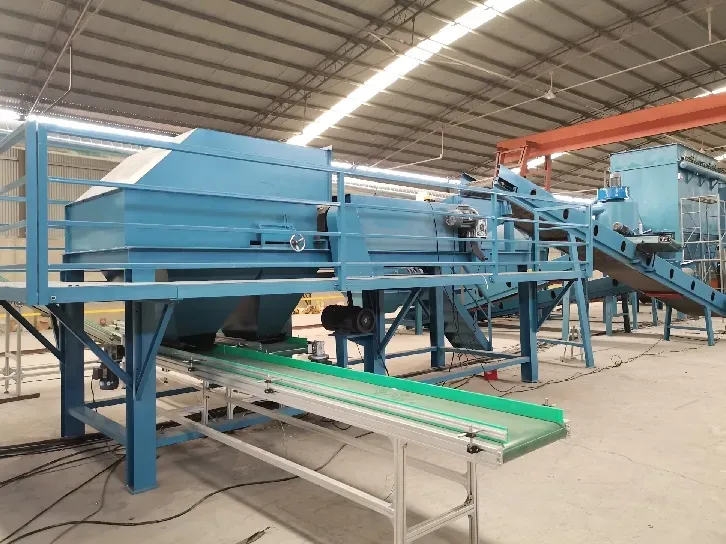

ធ្នូ . 05, 2024 14:47 Back to list
The Intricacies and Importance of Metal Shreds in Modern Industries
In the ever-evolving landscape of manufacturing and recycling, metal shreds play a crucial role that is often overlooked. These small fragments of metal, generated as byproducts from various industrial processes, are more than mere waste; they represent a significant opportunity for sustainability, resource recovery, and economic efficiency.
Metal shreds can originate from a myriad of sources, including machining processes, auto demolitions, and manufacturing operations. For instance, when metal parts are machined to precise specifications, the process inevitably produces shavings and off-cuts that accumulate over time. Similarly, in the automotive industry, end-of-life vehicles are dismantled, leaving behind valuable metal scraps that can be processed and reused.
One of the key aspects of metal shreds is their recyclability. Unlike many materials that degrade during the recycling process, metals retain their properties indefinitely. This characteristic makes metal shreds an invaluable resource. When sent to recycling facilities, these shreds can be melted down and reconstituted into new products, contributing to a circular economy. This not only reduces the need for virgin materials—which are often extracted through environmentally damaging processes—but also cuts down on energy consumption and greenhouse gas emissions associated with metal production.
In particular, the demand for recycled metals has surged in recent years, driven by various sectors including construction, electronics, and automotive industries. For example, aluminum shreds are increasingly sought after as the automotive industry shifts towards lighter materials for improved fuel efficiency. Similarly, copper shreds find extensive applications in electrical components and wiring. The ability to recycle these materials fosters innovation, allowing businesses to create new products while minimizing waste and conserving resources.

However, the collection and processing of metal shreds present challenges that industries must navigate. The shreds can vary greatly in size, composition, and contamination from other materials. Effective sorting is essential to ensure that different types of metals are separated and processed appropriately. Advanced technologies, such as magnetic separation, eddy currents, and optical sorting, have been developed to efficiently handle these complex tasks. Moreover, recycling facilities must adhere to stringent regulations and environmental practices to minimize their ecological footprint while maximizing output.
The economic impact of metal shreds is another vital consideration. Beyond their environmental benefits, recycling metal scraps generates significant revenue. The global market for recycled metals has been growing steadily, with countries recognizing the economic advantages of tapping into local metal shred supplies instead of relying solely on imported materials. This not only strengthens domestic industries but also creates job opportunities in recycling operations and related sectors.
Moreover, as global awareness of sustainability issues rises, corporations are increasingly held accountable for their waste management practices. Utilizing metal shreds as a resource aligns with broader corporate social responsibility (CSR) initiatives, enhancing brand reputation and consumer trust. Companies can demonstrate their commitment to sustainable practices by implementing efficient recycling programs, thereby appealing to environmentally conscious consumers who favor green brands.
In conclusion, metal shreds are much more than waste—they are a pivotal element in the quest for sustainability in modern industries. From their role in conserving resources and energy to their growing economic significance, these small yet impactful materials contribute to a healthier planet and a robust economy. As technology and recycling processes continue to advance, the utilization of metal shreds will undoubtedly play an even more critical role in shaping a sustainable future. Industries must recognize this potential and strive to innovate further, ensuring that they not only minimize waste but also prioritize the responsible use of metal resources for generations to come.
Latest news
Troubleshooting Common Eddy Separator Problems
NewsJul.04,2025
The Role of Metal Recycling Plants in Circular Economy
NewsJul.04,2025
The Impact of Recycling Line Pickers on Waste Management Costs
NewsJul.04,2025
Safety Features Every Metal Shredder Should Have
NewsJul.04,2025
How Industrial Shredders Improve Waste Management Systems
NewsJul.04,2025
How Cable Granulators Contribute to Sustainable Recycling
NewsJul.04,2025